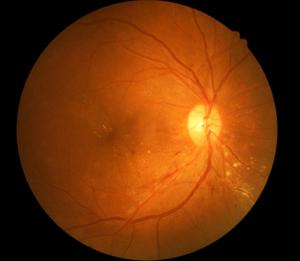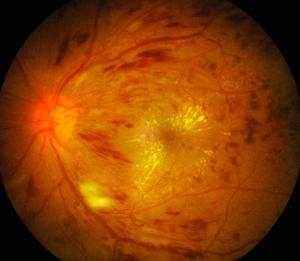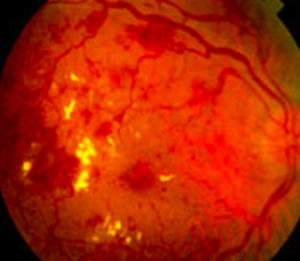BOOK ONLINE NOW
Once you have been diagnosed with diabetes, your GP will recommend you make appointments with a range of allied health professionals such as a dietitian, endocrinologist, podiatrist, and an optometrist to help you with managing your condition. Here we focus on why you should book a diabetic eye exam with an optometrist on a regular basis.
Diabetic retinopathy is a complication of diabetes that damages blood vessels inside the retina at the back of the eye. Regular eye exams reduce the risk of vision loss and blindness caused by diabetic retinopathy.
Laser treatment and injections into the eyes are used successfully to treat retinopathy. All people with diabetes are at risk of developing diabetic retinopathy.
- 280 Australians develop diabetes every day. That’s one person every five minutes
- Around 1.7 million Australians have diabetes. This includes all types of diagnosed diabetes in which Type 2 diabetes accounts for 85% of all diabetes and is increasing.
- Diabetes is the leading cause of blindness in working age adults

Normal Vision

Vision with Diabetic Retinopathy
There are two types of this condition: background retinopathy and proliferative retinopathy.
This condition rarely causes any vision to be lost and therefore does not require treatment. Occasionally a swelling of the retina may cause hazy vision or straight lines to appear bent. If vision is affected in this way, your optometrist can confirm its cause and will refer you for appropriate treatment.
This condition is more serious and requires early treatment to prevent serious vision loss. At Aphrodite Livanes Optometrists, we can recognise signs that this condition might develop, or detect it in its early stages. Once proliferative retinopathy has been diagnosed, we will refer you to an eye surgeon for further appraisal and probable laser treatment. Treatment of this condition has a better chance of success if it is applied very early.
A yearly diabetic eye exam is essential to protect your eyesight. During your checkup, you may require a pupil dilation. Drops are placed on the eye, which dilate the pupil for 4-5 hours. Often patients need someone to drive them home, and to wear sunglasses, as vision is often blurry and the glare is a problem for a few hours afterwards.
Effective diabetes management relies on better control of blood sugar levels, blood pressure and cholesterol, to help delay the development of retinopathy.
Please let the team at our Alexandra Hills optometry clinic know if you are diabetic when booking an appointment, as further testing will be required.

Normal retina

Background Retinopathy

Proliferative Retinopathy
© 2026 Aphrodite Livanes Optometrists Alexandra Hills Brisbane. All rights reserved.